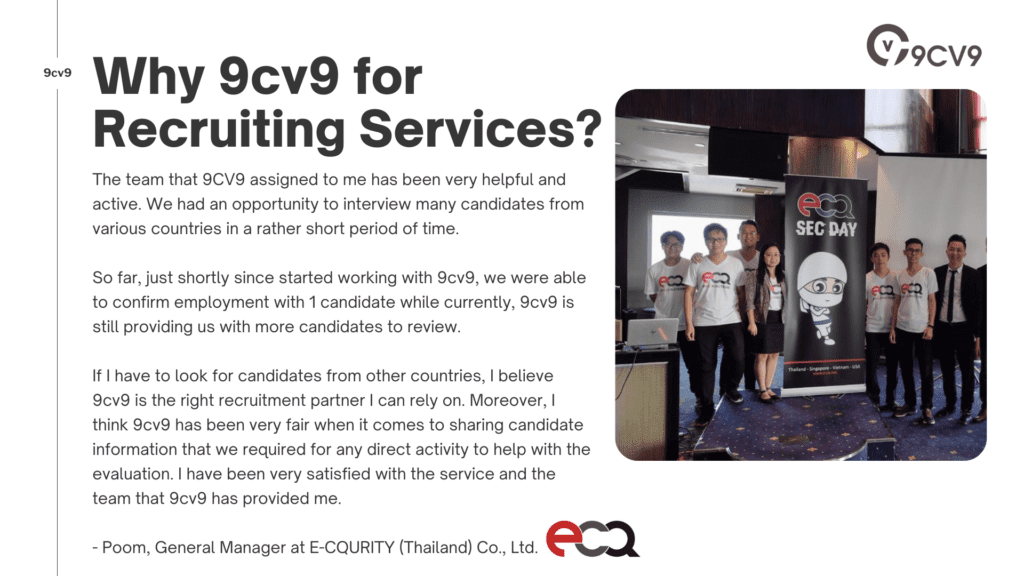Key Takeaways
- Comprehensive Market Insights: Understand Vietnam’s dynamic business landscape, key sectors for investment, and economic trends to strategically position your company for success.
- Navigating Legal and Cultural Nuances: Learn how to manage regulatory requirements, secure necessary permits, and effectively bridge cultural and language barriers for smooth business operations.
- Leveraging Technology and Finance: Explore essential digital tools, financing options, and banking services to enhance operational efficiency, secure funding, and mitigate financial risks.
In the bustling landscape of Southeast Asia, Vietnam stands out as a beacon of economic dynamism, drawing the attention of global investors and entrepreneurs seeking lucrative opportunities in a rapidly evolving market.
As the country continues its impressive growth trajectory, fueled by a burgeoning middle class, strategic geographical location, and favorable government policies, the allure of establishing a business in Vietnam has never been stronger.
For foreign entrepreneurs with aspirations of tapping into Vietnam’s vibrant economy, navigating the intricate process of setting up a company can seem like a daunting task.
From understanding the legal and regulatory framework to overcoming language and cultural barriers, the journey towards business establishment in Vietnam is rife with challenges and complexities.
However, fear not, for this guide is your roadmap to success in the Vietnamese business landscape.
Whether you’re a seasoned investor looking to expand your global footprint or a budding entrepreneur seeking to capitalize on emerging opportunities, this comprehensive resource will equip you with the knowledge, insights, and practical strategies needed to navigate the intricacies of company formation in Vietnam with confidence and clarity.
Throughout this guide, we’ll delve deep into every aspect of the business setup process, providing step-by-step instructions, expert advice, and invaluable tips gleaned from years of experience working with foreign investors and businesses in Vietnam.
From the initial stages of market research and business planning to the finer details of legal compliance, taxation, and human resources management, we leave no stone unturned in our quest to empower you to achieve your entrepreneurial ambitions in Vietnam.
But beyond the practicalities of company registration and operation, we’ll also explore the rich tapestry of Vietnamese culture, traditions, and business etiquette, shedding light on the nuances of interpersonal relationships and communication that are vital for forging meaningful connections and fostering success in the local market.
Moreover, in an era defined by rapid technological advancements and digital transformation, we’ll delve into the latest trends and innovations shaping the Vietnamese business landscape, offering insights into harnessing the power of technology, digital marketing, and e-commerce to propel your business forward in the digital age.
As you embark on this exciting journey of entrepreneurship in Vietnam, remember that success is not merely measured by financial gains but by the impact you make on the lives of people and communities you serve.
With a spirit of resilience, adaptability, and cultural sensitivity, you’ll not only build a thriving business but also contribute to the socio-economic development and prosperity of Vietnam and its people.
So, without further ado, let us embark on this transformative voyage together, as we unravel the mysteries, seize the opportunities, and conquer the challenges that await us on the path to business success in Vietnam.
Welcome aboard, fellow entrepreneur, to your ultimate guide to setting up a company in Vietnam.
Foreigner’s Guide to Setting Up a Company in Vietnam (2024)
- Understanding the Business Landscape in Vietnam
- Preparing for Company Formation
- Step-by-Step Company Registration Process
- Navigating Cultural and Language Barriers
- Hiring and Managing Employees
- Accessing Finance and Banking Services
- Leveraging Technology and Digital Tools
- Navigating Challenges and Risks
1. Understanding the Business Landscape in Vietnam
Vietnam’s business landscape is a dynamic tapestry woven with economic vibrancy, cultural richness, and strategic opportunities for foreign entrepreneurs.
To embark on a successful business venture in Vietnam, it’s crucial to gain a comprehensive understanding of the multifaceted factors that shape its business environment.
Economic and Political Climate
- Economic Growth: Vietnam has experienced robust economic growth in recent years, with GDP consistently outperforming global averages. Its economy is fueled by diverse sectors including manufacturing, agriculture, tourism, and technology.
- Government Policies: The Vietnamese government has implemented numerous reforms to promote foreign investment and facilitate business growth. Initiatives such as tax incentives, streamlined regulations, and infrastructure development initiatives create an attractive investment climate for foreign entrepreneurs.
- Trade Agreements: Vietnam’s participation in regional and international trade agreements, such as the Comprehensive and Progressive Agreement for Trans-Pacific Partnership (CPTPP) and the European Union-Vietnam Free Trade Agreement (EVFTA), provides businesses with access to expansive markets and tariff reduction benefits.
Emerging Industries and Investment Opportunities
- Manufacturing: Vietnam’s manufacturing sector, particularly in electronics, textiles, and footwear, has flourished, attracting multinational corporations seeking cost-effective production bases.
- Technology and Innovation: With a young, tech-savvy population and growing investment in digital infrastructure, Vietnam’s technology sector is ripe with opportunities. Startups and tech companies thrive in areas like fintech, e-commerce, and software development.
- Tourism and Hospitality: Vietnam’s natural beauty, rich cultural heritage, and diverse attractions make it a popular destination for international tourists. Investments in hotels, resorts, and travel services cater to the growing demand for hospitality experiences.
Legal Framework for Foreign-Owned Enterprises
- Foreign Investment Laws: Vietnam’s legal framework allows for full foreign ownership in certain industries while imposing restrictions or requiring joint ventures in others. Understanding sector-specific regulations and investment incentives is essential for navigating legal complexities.
- Company Registration Requirements: Foreign entrepreneurs must adhere to specific procedures and documentation requirements when registering a company in Vietnam. This includes obtaining investment licenses, registering business activities, and complying with capital contribution regulations.
- Intellectual Property Rights: Protecting intellectual property rights is paramount for businesses operating in Vietnam. Familiarizing oneself with trademark registration, copyright laws, and enforcement mechanisms safeguards against infringement and ensures business continuity.
Examples:
- Samsung Electronics: The South Korean tech giant has invested billions in Vietnam’s manufacturing sector, establishing multiple production facilities across the country. Its presence underscores Vietnam’s attractiveness as a manufacturing hub for global corporations.
- VNG Corporation: As one of Vietnam’s leading technology companies, VNG has pioneered innovations in gaming, social media, and digital content. Its success highlights the growth potential of Vietnam’s tech ecosystem and the entrepreneurial spirit driving innovation in the country.
- VinGroup: This Vietnamese conglomerate has made significant investments in real estate, retail, hospitality, and technology sectors, shaping the landscape of domestic and international markets. VinGroup’s diverse portfolio exemplifies Vietnam’s entrepreneurial dynamism and investment opportunities across industries.

In navigating Vietnam’s business landscape, leveraging market insights, strategic partnerships, and a nuanced understanding of local regulations and cultural nuances will be instrumental in unlocking the vast potential that this vibrant economy offers to foreign entrepreneurs.
2. Preparing for Company Formation
Before embarking on the journey of company formation in Vietnam, meticulous preparation and strategic planning are paramount.
Understanding the prerequisites, conducting thorough research, and making informed decisions lay the foundation for a successful business venture in this dynamic market.

Research and Market Analysis
- Market Assessment: Conduct comprehensive market research to assess demand, competition, and consumer behavior in your target industry. Identify market gaps, emerging trends, and opportunities for innovation.
- Competitor Analysis: Analyze competitors operating in similar sectors to gain insights into their strategies, market positioning, and areas for differentiation. Evaluate their strengths and weaknesses to refine your business approach.
- Regulatory Environment: Familiarize yourself with Vietnam’s regulatory landscape, including business laws, taxation policies, and industry-specific regulations. Seek guidance from legal experts or consultants to navigate regulatory complexities effectively.
Choosing the Right Business Structure
- Legal Entity Options: Evaluate different business structures available in Vietnam, such as limited liability companies (LLCs), joint-stock companies (JSCs), partnerships, and representative offices. Select a structure that aligns with your business objectives, ownership preferences, and liability considerations.
- Foreign Ownership Restrictions: Be mindful of foreign ownership restrictions in certain sectors, as Vietnamese laws may impose limitations or require joint ventures with local partners in specific industries.
- Consultation with Legal Advisors: Seek guidance from legal advisors or corporate law firms specializing in Vietnamese business law to ensure compliance with regulatory requirements and mitigate legal risks associated with company formation.
Understanding Visa and Work Permit Requirements for Foreign Entrepreneurs
- Business Visa Categories: Explore different types of business visas available for foreign entrepreneurs, such as investor visas, work visas, and business visit visas. Understand the eligibility criteria, application procedures, and validity periods for each visa category.
- Work Permit Regulations: Determine whether a work permit is required for foreign directors, managers, or employees involved in company operations. Familiarize yourself with work permit application procedures, documentation requirements, and renewal processes.
- Immigration Compliance: Ensure compliance with immigration laws and regulations to avoid legal complications or penalties. Maintain accurate records of visa and work permit statuses for all foreign personnel employed by the company.
Examples:
- Market Analysis: Before establishing a software development company in Vietnam, conducting market research revealed a growing demand for cybersecurity solutions among local businesses. This insight guided the company’s product development strategy and marketing efforts, resulting in a successful market entry and rapid business growth.
- Choosing Business Structure: A foreign investor interested in setting up a manufacturing facility in Vietnam consulted legal advisors to determine the most suitable business structure. After considering factors such as ownership control, liability protection, and regulatory compliance, the investor opted for a joint-stock company (JSC) to facilitate expansion plans and access capital markets.
- Work Permit Compliance: An expatriate entrepreneur planning to launch a restaurant chain in Vietnam ensured compliance with work permit regulations for foreign chefs and managers. By obtaining work permits for key personnel and adhering to immigration laws, the entrepreneur avoided legal issues and maintained operational continuity.
By diligently preparing for company formation, foreign entrepreneurs can navigate the complexities of Vietnam’s business environment with confidence and clarity.
Strategic planning, legal compliance, and market insights are essential pillars for laying a solid foundation and maximizing success in the Vietnamese market.
3. Step-by-Step Company Registration Process
Registering a company in Vietnam involves a series of detailed steps that ensure compliance with local laws and regulations.
By understanding and following these steps meticulously, foreign entrepreneurs can streamline the registration process and establish a solid foundation for their business operations in Vietnam.

Obtaining Necessary Licenses and Permits
- Investment Registration Certificate (IRC):
- Required for foreign investors setting up a new company.
- Submit an application to the Department of Planning and Investment (DPI) in the province where the company will be based.
- Include documents such as the proposed company’s charter, investor’s identification, and financial statements.
- Enterprise Registration Certificate (ERC):
- Once the IRC is obtained, apply for the ERC.
- Submit company charter, list of founding members, and relevant legal documents.
- The ERC process typically takes about 3-5 working days.
- Additional Licenses:
- Depending on the business sector, additional licenses may be required (e.g., food safety license for restaurants, construction permits for real estate companies).
- Verify specific industry requirements with local authorities.
Registering Business Name and Address
- Business Name Registration:
- Ensure the proposed company name is unique and complies with Vietnamese naming conventions.
- Check the availability of the name through the National Business Registration Portal.
- Avoid using restricted or sensitive words.
- Office Address Registration:
- Secure a physical office address that complies with local zoning laws.
- Provide a lease agreement or proof of property ownership as part of the registration process.
- Virtual offices or shared office spaces are permissible under certain conditions.
Capital Requirements and Investment Procedures
- Minimum Capital Requirements:
- Determine the minimum capital required based on the business sector and size.
- Sectors such as banking, finance, and real estate may have higher capital requirements.
- Ensure the capital is deposited into a Vietnamese bank account and certified by the bank.
- Capital Contribution Timeline:
- Adhere to the capital contribution schedule as outlined in the company charter.
- Typically, capital must be fully contributed within 90 days from the issuance of the ERC.
- Delays in capital contribution can lead to penalties or cancellation of business registration.
Tax Registration and Compliance
- Tax Code Registration:
- Register for a tax code with the local tax department within 10 working days of receiving the ERC.
- The tax code is essential for conducting business activities, issuing invoices, and filing taxes.
- VAT Registration:
- Businesses with annual revenue exceeding VND 1 billion must register for Value Added Tax (VAT).
- Submit the VAT registration form and relevant documents to the tax authority.
- Corporate Income Tax (CIT):
- Understand the CIT rates and filing requirements.
- Standard CIT rate is 20%, but preferential rates may apply to certain industries or investment zones.
- Other Taxes:
- Depending on the business activities, additional taxes such as import-export duties, personal income tax for employees, and social insurance contributions may apply.
Examples:
- Investment Registration: A technology startup focused on software development successfully obtained its IRC by preparing detailed financial projections and a comprehensive business plan, highlighting its potential to contribute to Vietnam’s digital economy.
- Office Address Compliance: A retail business secured a prime location in Ho Chi Minh City, ensuring the office space complied with local zoning regulations and provided a lease agreement as part of the ERC application.
- Tax Registration: A manufacturing company swiftly completed its tax registration and VAT registration processes, enabling it to legally issue VAT invoices and benefit from input VAT credits on its purchases.
By meticulously following these step-by-step procedures, foreign entrepreneurs can navigate the company registration process in Vietnam efficiently.
Ensuring compliance with local regulations, accurately preparing required documentation, and understanding specific industry requirements are crucial for a smooth and successful business setup in Vietnam.
4. Navigating Cultural and Language Barriers
Establishing a successful business in Vietnam requires more than just understanding the legal and regulatory framework.
Navigating cultural and language barriers is crucial for building strong relationships, ensuring effective communication, and fostering a positive business environment.
This section provides a comprehensive guide to overcoming these challenges.
Importance of Building Local Relationships
- Networking:
- Engage in local business networks, chambers of commerce, and industry associations to connect with Vietnamese business leaders and entrepreneurs.
- Participate in trade fairs, business seminars, and networking events to build valuable connections.
- Trust and Relationships:
- Focus on building long-term relationships based on trust and mutual respect. In Vietnamese culture, trust is a cornerstone of successful business dealings.
- Regular face-to-face meetings and social interactions, such as sharing meals, help strengthen relationships.
- Local Partnerships:
- Consider forming partnerships or joint ventures with local businesses to gain insights into the market and navigate regulatory complexities.
- Local partners can provide cultural context, help bridge language gaps, and facilitate smoother business operations.
Understanding Vietnamese Business Etiquette
- Greetings and Introductions:
- Use formal titles and respectful language when addressing Vietnamese counterparts. Titles such as “Mr.” (Ông), “Mrs.” (Bà), or “Miss” (Cô) followed by the person’s last name are customary.
- A gentle handshake accompanied by a slight bow is an appropriate greeting.
- Business Cards:
- Exchange business cards during introductions. Present and receive cards with both hands as a sign of respect.
- Take a moment to examine the business card before putting it away, showing appreciation for the gesture.
- Meeting Protocols:
- Schedule meetings well in advance and confirm them a few days before the actual date.
- Punctuality is valued, so arriving on time for meetings is important.
- Prepare for a mix of formal discussions and informal conversations during meetings.
- Communication Style:
- Indirect communication is common in Vietnamese culture. Be attentive to non-verbal cues and read between the lines.
- Avoid confrontation and criticism in public settings; instead, address issues privately and diplomatically.
Language Support and Translation Services
- Language Barriers:
- While English is increasingly spoken in business circles, especially in major cities, Vietnamese remains the dominant language. Be prepared for language barriers in daily operations and communications.
- Professional Translators:
- Hire professional translators or interpreters for important meetings, negotiations, and document translations to ensure accurate communication.
- Verify the qualifications and experience of translators to ensure they understand business terminology and cultural nuances.
- Learning Vietnamese:
- Consider learning basic Vietnamese phrases and greetings to demonstrate respect and effort in bridging language gaps.
- Enroll in language courses or use language learning apps to build conversational skills over time.
- Bilingual Staff:
- Employ bilingual staff members who can facilitate communication between foreign management and local employees.
- Bilingual staff can also assist in translating documents, managing local customer interactions, and navigating regulatory requirements.
Examples:
- Building Local Relationships: An international marketing firm entering the Vietnamese market joined the local chamber of commerce and regularly attended industry events. These efforts led to collaborations with local companies and enhanced their market presence.
- Understanding Business Etiquette: A foreign-owned manufacturing company ensured that their executives were trained in Vietnamese business etiquette. By respecting local customs and traditions, they built strong relationships with local suppliers and government officials, leading to smoother operations.
- Language Support: A tech startup in Ho Chi Minh City hired a bilingual office manager who facilitated communication between the foreign founders and local employees. The manager’s language skills and cultural understanding were instrumental in resolving misunderstandings and improving team cohesion.
By effectively navigating cultural and language barriers, foreign entrepreneurs can build strong relationships, foster trust, and create a harmonious working environment in Vietnam.
Understanding and respecting local customs, leveraging language support services, and actively engaging with the local business community are key strategies for overcoming these challenges and achieving business success.
5. Hiring and Managing Employees
Effectively hiring and managing employees is essential for the success of any business venture in Vietnam.
Understanding the local labor market, adhering to labor laws, and implementing effective management strategies can help foreign entrepreneurs build a productive and motivated workforce.
Recruitment Strategies
- Local Job Portals:
- Utilize popular job portals like 9cv9 Vietnam, and MyWork to advertise job openings and attract potential candidates.
- Leverage LinkedIn to connect with professionals and promote job opportunities.
- Recruitment Agencies:
- Partner with reputable recruitment agencies that specialize in your industry to find qualified candidates.
- Recruitment agencies can assist with pre-screening, interviewing, and background checks.
- University Partnerships:
- Collaborate with local universities and vocational schools to access a pool of young, talented graduates.
- Participate in job fairs, career days, and internship programs to engage with potential hires.
- Employee Referrals:
- Implement an employee referral program to encourage current employees to recommend suitable candidates.
- Offer incentives or bonuses for successful referrals to motivate participation.
Labor Laws and Regulations
- Employment Contracts:
- Draft clear and comprehensive employment contracts in accordance with Vietnamese labor laws.
- Include details such as job responsibilities, salary, working hours, benefits, and termination conditions.
- Work Hours and Overtime:
- Standard working hours are 8 hours per day and 48 hours per week. Ensure compliance with these regulations.
- Overtime work should be compensated at rates specified by law: 150% for normal days, 200% for weekends, and 300% for public holidays.
- Social Insurance and Benefits:
- Register employees for social insurance, health insurance, and unemployment insurance.
- Contribute to mandatory insurance funds and ensure employees receive the benefits they are entitled to.
- Labor Disputes:
- Establish clear procedures for handling labor disputes and grievances.
- Mediate disputes internally or seek assistance from labor authorities to resolve conflicts amicably.
Employee Benefits and Compensation Packages
- Competitive Salaries:
- Conduct market research to offer competitive salaries that attract and retain top talent.
- Consider annual salary reviews and performance-based increments to reward employee contributions.
- Health and Wellness Benefits:
- Provide health insurance coverage, including medical, dental, and vision care.
- Offer wellness programs such as gym memberships, health screenings, and mental health support.
- Professional Development:
- Invest in employee training and development programs to enhance skills and career growth.
- Encourage participation in workshops, conferences, and certification courses.
- Work-Life Balance:
- Implement policies that promote work-life balance, such as flexible working hours, remote work options, and paid time off.
- Organize team-building activities and social events to foster a positive work environment.
Managing and Motivating Employees
- Clear Communication:
- Maintain open and transparent communication channels with employees.
- Regularly update staff on company goals, performance, and changes in policies.
- Performance Management:
- Set clear performance expectations and regularly review employee performance.
- Provide constructive feedback, recognize achievements, and address areas for improvement.
- Cultural Sensitivity:
- Be mindful of cultural differences and practices in the workplace.
- Celebrate local holidays and cultural events to show respect and appreciation for employees’ traditions.
- Leadership and Management Training:
- Offer leadership development programs for managers to enhance their skills in team management, conflict resolution, and decision-making.
- Encourage a leadership style that is inclusive, supportive, and empowers employees.
Examples:
- Recruitment Strategies: A multinational corporation entering the Vietnamese market uses 9cv9 to hire top talents. This collaboration provided access to a pool of talented young professionals who were eager to start their careers.
- Compliance with Labor Laws: A foreign-owned manufacturing company ensured all employment contracts complied with Vietnamese labor laws, including details about salary, working hours, and benefits. This compliance helped the company build a trustworthy relationship with its workforce and avoid legal issues.
- Employee Benefits: A tech startup in Hanoi offered comprehensive health insurance, professional development opportunities, and flexible working hours. These benefits attracted skilled developers and contributed to high employee retention rates.
- Performance Management: An international retail chain implemented a robust performance management system with regular feedback sessions and clear performance metrics. This approach improved employee productivity and morale, leading to better customer service and higher sales.
By implementing effective recruitment strategies, adhering to labor laws, offering competitive benefits, and fostering a supportive management culture, foreign entrepreneurs can build and manage a motivated and productive workforce in Vietnam.
These practices not only enhance employee satisfaction but also contribute to the overall success and sustainability of the business.
Unlocking Top Talent with 9cv9 Vietnam
In Vietnam’s competitive job market, finding and attracting top talent can be a daunting task for businesses of all sizes.
However, with the right recruitment agency like 9cv9 Vietnam, the process becomes streamlined, efficient, and ultimately successful.
Industry Expertise and Experience
- Deep Understanding of the Local Market: 9cv9 Vietnam boasts a team of seasoned recruiters with a profound understanding of Vietnam’s job market dynamics, industry trends, and talent landscape.
- Specialized Recruitment Services: With a focus on various industries including technology, finance, manufacturing, and hospitality, 9cv9 Vietnam offers specialized recruitment solutions tailored to the unique needs of each sector.

Extensive Talent Network
- Vast Talent Pool: Leveraging their extensive network and database of top-tier candidates, 9cv9 Vietnam connects businesses with a diverse pool of qualified professionals ranging from entry-level to executive positions.
- Active Candidate Sourcing: Through proactive candidate sourcing strategies, including job fairs, networking events, and digital platforms, 9cv9 Vietnam ensures access to passive candidates who may not be actively seeking employment but possess valuable skills and experience.
Efficient Recruitment Process
- Streamlined Screening and Selection: 9cv9 Vietnam employs rigorous screening and selection processes to identify candidates who not only meet the job requirements but also align with the company’s culture and values.
- Time-saving Solutions: By handling the time-consuming tasks of candidate sourcing, screening, and initial interviews, 9cv9 Vietnam allows businesses to focus on core operations while ensuring a seamless recruitment experience.

Personalized Service and Support
- Tailored Recruitment Strategies: Understanding that every business has unique hiring needs, 9cv9 Vietnam offers personalized recruitment strategies that align with the company’s goals, values, and budget constraints.
- Dedicated Account Management: With dedicated account managers providing ongoing support and guidance throughout the recruitment process, businesses can expect a high level of responsiveness and professionalism at every stage.
Proven Track Record of Success
- Success Stories and Testimonials: With a track record of successful placements and satisfied clients, 9cv9 Vietnam has earned a reputation as a trusted recruitment partner in the Vietnamese market.
- Client-Centric Approach: Focused on delivering measurable results and exceeding client expectations, 9cv9 Vietnam consistently strives for excellence in every recruitment assignment.

Summary
In a competitive business landscape where talent acquisition plays a pivotal role in driving success, partnering with a reputable recruitment agency like 9cv9 Vietnam can make all the difference.
With their industry expertise, extensive talent network, efficient recruitment process, personalized service, and proven track record, businesses can confidently rely on 9cv9 Vietnam to hire top talents and fuel their growth and success in Vietnam’s dynamic market.
6. Accessing Finance and Banking Services
Securing appropriate financing and banking services is crucial for establishing and growing a business in Vietnam.
Understanding the financial landscape, exploring various funding options, and navigating banking services are essential steps for foreign entrepreneurs.
This comprehensive guide provides detailed insights into accessing finance and banking services in Vietnam.
Opening a Business Bank Account
- Choosing the Right Bank:
- Research and compare different banks in Vietnam, including local banks (e.g., Vietcombank, BIDV, Techcombank) and international banks (e.g., HSBC, Standard Chartered).
- Consider factors such as banking fees, customer service, online banking capabilities, and branch accessibility.
- Required Documentation:
- Prepare necessary documents, including the Enterprise Registration Certificate (ERC), Investment Registration Certificate (IRC), company charter, and identification documents of the company’s legal representative.
- Some banks may require additional documents, such as the company’s tax code certificate and lease agreement for the business premises.
- Account Types:
- Decide on the type of bank account needed, such as a current account for daily operations or a savings account for holding surplus funds.
- Consider opening multiple accounts if needed for different purposes (e.g., payroll, operational expenses, savings).
Financing Options for Foreign Businesses
- Equity Financing:
- Raise capital by issuing shares in your company to investors. This can include venture capital firms, private equity investors, or strategic partners.
- Equity financing can provide significant funds without the burden of debt repayment but may dilute ownership control.
- Debt Financing:
- Obtain loans from banks or financial institutions. Common loan types include term loans, working capital loans, and trade finance.
- Interest rates and repayment terms vary, so compare offers from multiple lenders to secure the best terms.
- Government Incentives and Grants:
- Explore government programs that offer financial incentives to foreign investors, such as tax holidays, reduced tax rates, and grants for specific industries.
- Check with the Ministry of Planning and Investment and other relevant government bodies for available programs.
- Angel Investors and Venture Capital:
- Seek funding from angel investors and venture capital firms that focus on startups and high-growth companies.
- Attend networking events, pitch competitions, and industry conferences to connect with potential investors.
- Crowdfunding:
- Utilize online crowdfunding platforms to raise funds for your business. Platforms such as Kickstarter and Indiegogo can help reach a broad audience of potential investors.
- Prepare a compelling pitch and detailed business plan to attract backers.
Understanding Currency Regulations
- Foreign Exchange Control:
- Be aware of the State Bank of Vietnam’s (SBV) regulations on foreign exchange. These regulations govern the conversion of Vietnamese Dong (VND) to foreign currencies and vice versa.
- Ensure compliance with reporting requirements for foreign exchange transactions to avoid penalties.
- Repatriation of Profits:
- Foreign investors can repatriate profits after fulfilling all tax obligations and financial reporting requirements.
- Consult with tax advisors or legal experts to understand the repatriation process and ensure compliance with local laws.
- Currency Risks:
- Manage currency risks by using hedging instruments such as forward contracts, options, and swaps.
- Work with financial advisors to develop strategies that mitigate the impact of currency fluctuations on your business.
Examples:
- Opening a Business Bank Account: A foreign-owned retail company successfully opened a business bank account with Vietcombank by preparing all required documentation, including the ERC and identification papers. The bank’s comprehensive online banking services facilitated smooth daily transactions.
- Debt Financing: A manufacturing firm obtained a working capital loan from BIDV to expand its production capacity. The competitive interest rate and favorable repayment terms allowed the company to scale operations efficiently.
- Government Incentives: A technology startup benefited from a government grant program aimed at promoting innovation. The grant provided funding for research and development, accelerating the company’s product development timeline.
- Currency Risk Management: An export-oriented business used forward contracts to hedge against currency risks associated with fluctuations in the VND-USD exchange rate. This strategy stabilized their profit margins and ensured predictable financial outcomes.
By understanding the financial landscape, exploring various funding options, and leveraging banking services effectively, foreign entrepreneurs can secure the necessary resources to establish and grow their businesses in Vietnam.
Access to finance and efficient banking services are critical components of a successful business strategy, enabling companies to thrive in the dynamic Vietnamese market.
7. Leveraging Technology and Digital Tools
In the rapidly evolving business landscape of Vietnam, leveraging technology and digital tools is essential for gaining a competitive edge, improving operational efficiency, and driving business growth.
From communication and collaboration platforms to advanced analytics and e-commerce solutions, embracing digital transformation can significantly enhance the productivity and scalability of your business.
Communication and Collaboration Tools
- Instant Messaging and Video Conferencing:
- Utilize platforms like Slack, Microsoft Teams, and Zoom to facilitate real-time communication and collaboration among team members.
- Schedule regular video meetings to maintain face-to-face interactions, especially for remote teams.
- Project Management Software:
- Implement project management tools such as Trello, Asana, and Monday.com to streamline project workflows, track progress, and manage deadlines.
- Use these tools to assign tasks, set milestones, and ensure accountability across the team.
- Cloud Storage and File Sharing:
- Adopt cloud storage solutions like Google Drive, Dropbox, and OneDrive for secure and accessible file storage and sharing.
- Enable team members to collaborate on documents in real-time, enhancing productivity and reducing email clutter.
Business Process Automation
- Customer Relationship Management (CRM) Systems:
- Deploy CRM systems like Salesforce, HubSpot, and Zoho CRM to manage customer interactions, track sales activities, and improve customer service.
- Use CRM analytics to gain insights into customer behavior and preferences, helping to tailor marketing strategies.
- Enterprise Resource Planning (ERP) Software:
- Implement ERP systems such as SAP, Oracle, and Microsoft Dynamics to integrate and manage core business processes, including finance, HR, and supply chain.
- ERP solutions provide real-time data visibility, enabling informed decision-making and efficient resource management.
- Human Resources Management Systems (HRMS):
- Utilize HRMS platforms like BambooHR, Workday, and ADP to automate HR processes, including payroll, recruitment, and performance management.
- Streamline employee onboarding, track attendance, and manage benefits through a centralized system.
E-commerce and Digital Marketing
- E-commerce Platforms:
- Set up online stores using platforms like Shopify, WooCommerce, and Magento to reach a broader customer base and increase sales.
- Optimize product listings, integrate payment gateways, and implement robust security measures to enhance the shopping experience.
- Digital Marketing Tools:
- Use tools such as Google Analytics, SEMrush, and Ahrefs for SEO optimization, keyword research, and website performance tracking.
- Implement social media management tools like Hootsuite, Buffer, and Sprout Social to schedule posts, monitor engagement, and analyze social media metrics.
- Email Marketing Services:
- Leverage email marketing platforms like Mailchimp, Constant Contact, and SendinBlue to create targeted email campaigns, manage subscriber lists, and track campaign performance.
- Personalize email content and use automation to nurture leads and convert them into customers.
Data Analytics and Business Intelligence
- Data Analytics Platforms:
- Utilize data analytics tools like Tableau, Power BI, and Google Data Studio to visualize business data, identify trends, and generate actionable insights.
- Use predictive analytics to forecast future trends and make data-driven decisions.
- Customer Insights:
- Analyze customer data to understand purchasing patterns, preferences, and feedback.
- Implement customer segmentation strategies to target specific groups with tailored marketing efforts.
- Performance Monitoring:
- Track key performance indicators (KPIs) using business intelligence tools to monitor company performance across various departments.
- Regularly review dashboards and reports to ensure alignment with business goals and identify areas for improvement.
Cybersecurity Measures
- Security Software:
- Invest in comprehensive cybersecurity solutions like antivirus software, firewalls, and intrusion detection systems.
- Regularly update software to protect against the latest threats and vulnerabilities.
- Data Encryption:
- Implement encryption protocols to secure sensitive data, both in transit and at rest.
- Use secure communication channels and ensure compliance with data protection regulations.
- Employee Training:
- Conduct regular cybersecurity training for employees to raise awareness about phishing attacks, password security, and safe online practices.
- Establish clear policies for data protection and incident response.
Examples:
- Communication and Collaboration: A multinational corporation operating in Vietnam adopted Microsoft Teams and Trello to enhance communication and project management across its offices. This integration improved project timelines and fostered better team collaboration.
- E-commerce Expansion: A local fashion retailer transitioned to an online store using Shopify, significantly increasing its customer base and sales. The retailer leveraged social media marketing tools to drive traffic to its online store, achieving impressive growth within months.
- Data-Driven Decision Making: A tech startup utilized Power BI to analyze user data from its mobile app, gaining insights into user behavior and preferences. These insights informed product development and marketing strategies, leading to higher user engagement and satisfaction.
- Cybersecurity Enhancement: A financial services firm implemented advanced cybersecurity measures, including encryption and employee training programs, to protect sensitive client data. This proactive approach helped the firm maintain customer trust and comply with regulatory requirements.
By leveraging technology and digital tools effectively, businesses in Vietnam can optimize their operations, enhance customer engagement, and drive sustainable growth.
Embracing digital transformation is not just a competitive advantage but a necessity in today’s fast-paced business environment.
8. Navigating Challenges and Risks
Establishing and running a business in Vietnam offers numerous opportunities, but it also presents a range of challenges and risks.
Understanding and proactively managing these challenges is crucial for long-term success.
This comprehensive guide provides insights into the common challenges faced by foreign businesses in Vietnam and strategies to mitigate these risks.
Regulatory and Compliance Challenges
- Complex Regulatory Environment:
- Vietnam’s legal and regulatory framework can be complex and subject to frequent changes.
- Stay updated on regulations by subscribing to legal updates, attending seminars, and consulting with legal experts.
- Licensing and Permits:
- Obtaining the necessary licenses and permits can be time-consuming and involves multiple governmental departments.
- Example: A manufacturing company faced delays due to the lengthy process of securing environmental permits. Engaging local consultants helped streamline the process.
- Tax Compliance:
- Navigate the complexities of corporate income tax, VAT, and other local taxes.
- Ensure timely and accurate tax filings to avoid penalties and legal issues.
- Intellectual Property Protection:
- Protect intellectual property (IP) by registering trademarks, patents, and copyrights in Vietnam.
- Example: A tech startup registered its software patents to prevent unauthorized use and safeguard its innovations.
Market and Economic Risks
- Market Competition:
- The Vietnamese market is highly competitive, with both local and international players vying for market share.
- Conduct thorough market research to understand competitors and identify unique selling propositions.
- Economic Volatility:
- Economic conditions in Vietnam can be influenced by global market fluctuations, affecting exchange rates and inflation.
- Implement financial hedging strategies to mitigate the impact of currency fluctuations.
- Supply Chain Disruptions:
- Disruptions in the supply chain can occur due to logistical challenges, natural disasters, or geopolitical tensions.
- Diversify suppliers and maintain buffer inventory to manage supply chain risks.
Cultural and Language Barriers
- Cultural Differences:
- Understand and respect Vietnamese business culture, which emphasizes relationship-building and hierarchical structures.
- Example: A foreign-owned retail company hired local cultural consultants to train their staff on Vietnamese business etiquette, fostering better relationships with local partners.
- Language Barriers:
- Language differences can lead to misunderstandings and communication issues.
- Employ bilingual staff and use professional translation services for critical communications.
Legal and Political Risks
- Legal Disputes:
- Legal disputes can arise over contracts, employment issues, and intellectual property rights.
- Include arbitration clauses in contracts and seek legal advice to navigate disputes effectively.
- Political Stability:
- While Vietnam is generally politically stable, changes in government policies can impact business operations.
- Stay informed about political developments and engage with local business associations to voice concerns.
- Corruption and Bureaucracy:
- Corruption and bureaucratic red tape can pose significant challenges.
- Maintain transparency, adhere to ethical practices, and establish strong internal controls.
Financial Risks
- Access to Finance:
- Securing financing can be challenging for foreign businesses due to stringent lending criteria and limited access to local credit.
- Explore alternative financing options such as venture capital, equity financing, and government grants.
- Credit Risks:
- Assess the creditworthiness of partners and customers to mitigate the risk of non-payment.
- Implement credit management policies and use credit insurance if necessary.
- Cash Flow Management:
- Effective cash flow management is critical to maintaining liquidity and meeting operational expenses.
- Example: A logistics company implemented a robust cash flow forecasting system to ensure sufficient working capital during peak seasons.
Examples of Risk Mitigation Strategies
- Regulatory Compliance: A food processing company faced challenges in adhering to Vietnam’s food safety regulations. By hiring local regulatory experts and conducting regular compliance audits, the company ensured adherence to all standards, avoiding costly fines and product recalls.
- Market Entry Strategy: An international fashion brand conducted extensive market research before entering the Vietnamese market. By understanding local consumer preferences and adapting their product offerings accordingly, they successfully captured a significant market share.
- Supply Chain Resilience: A technology firm diversified its supplier base across multiple countries to reduce dependency on a single source. This strategy proved effective during regional disruptions, ensuring continuous production and delivery.
- Cultural Adaptation: A consulting firm established a cultural training program for expatriates, helping them understand Vietnamese customs and business practices. This initiative improved cross-cultural communication and enhanced workplace harmony.
- Financial Prudence: A startup in the renewable energy sector secured funding from multiple investors, reducing reliance on a single source of capital. They also implemented strict budget controls and financial monitoring to manage expenditure and growth.
By proactively addressing these challenges and implementing effective risk mitigation strategies, foreign businesses can navigate the complexities of the Vietnamese market.
Staying informed, seeking local expertise, and fostering strong relationships are key to overcoming obstacles and achieving sustainable success in Vietnam.
Conclusion
Setting up a company in Vietnam offers numerous opportunities for foreign entrepreneurs looking to tap into one of Asia’s most dynamic and rapidly growing markets.
With its strategic location, burgeoning consumer base, and favorable economic policies, Vietnam presents a compelling destination for international businesses.
However, successfully establishing and running a business in Vietnam requires careful planning, a deep understanding of the local business environment, and the ability to navigate various challenges and risks.
Key Takeaways
- Understanding the Business Landscape:
- Vietnam’s economic growth, driven by its open market policies, burgeoning middle class, and strategic trade agreements, creates an attractive environment for foreign investment.
- Identifying the right sector for investment and understanding local market trends are crucial steps in your business planning process.
- Preparing for Company Formation:
- Thorough preparation, including selecting the appropriate business structure, understanding legal requirements, and preparing necessary documentation, is essential for a smooth company formation process.
- Engaging local legal and business consultants can provide invaluable guidance and ensure compliance with Vietnamese regulations.
- Navigating Cultural and Language Barriers:
- Building strong relationships and understanding Vietnamese business etiquette are key to successful business operations.
- Utilizing language support services and hiring bilingual staff can bridge communication gaps and enhance cross-cultural interactions.
- Hiring and Managing Employees:
- Implementing effective recruitment strategies, understanding labor laws, and offering competitive benefits are vital for attracting and retaining talent.
- Adopting modern management practices and fostering a positive workplace culture can drive employee motivation and productivity.
- Accessing Finance and Banking Services:
- Opening a business bank account, exploring various financing options, and managing currency risks are critical steps in securing the financial health of your business.
- Leveraging government incentives and understanding the local banking landscape can provide additional support for your business operations.
- Leveraging Technology and Digital Tools:
- Embracing digital transformation through communication tools, business process automation, and e-commerce platforms can enhance operational efficiency and customer engagement.
- Utilizing data analytics and cybersecurity measures ensures informed decision-making and protects your business from potential threats.
- Navigating Challenges and Risks:
- Being aware of regulatory, market, cultural, legal, and financial challenges is crucial for risk management.
- Implementing proactive strategies, such as compliance audits, market research, and financial prudence, can mitigate risks and ensure business sustainability.
Final Thoughts
Embarking on the journey of setting up a company in Vietnam requires a comprehensive approach that balances opportunity with preparedness.
The Vietnamese market, with its robust economic growth and strategic position in the global trade landscape, holds immense potential for foreign investors.
However, success in this vibrant market hinges on your ability to navigate the complexities of local regulations, cultural nuances, and market dynamics.
By leveraging local expertise, adopting modern business practices, and staying informed about the evolving business landscape, foreign entrepreneurs can establish a strong foothold in Vietnam.
The insights provided in this guide serve as a foundational resource to help you make informed decisions and strategically position your business for success in 2024 and beyond.
As you embark on this exciting venture, remember that Vietnam’s business environment is continually evolving.
Staying adaptable, investing in continuous learning, and building strong local relationships will be key to sustaining your business growth and achieving long-term success in Vietnam.
With the right approach, your business can thrive in this dynamic market, contributing to and benefiting from Vietnam’s ongoing economic development.
If your company needs HR, hiring, or corporate services, you can use 9cv9 hiring and recruitment services. Book a consultation slot here, or send over an email to [email protected].
If you find this article useful, why not share it with your hiring manager and C-level suite friends and also leave a nice comment below?
We, at the 9cv9 Research Team, strive to bring the latest and most meaningful data, guides, and statistics to your doorstep.
To get access to top-quality guides, click over to 9cv9 Blog.
People Also Ask
What are the basic steps to set up a company in Vietnam?
The basic steps include choosing a business structure, registering your company name, obtaining an Enterprise Registration Certificate (ERC), getting an Investment Registration Certificate (IRC), and opening a bank account.
What types of business structures are available for foreigners in Vietnam?
Foreigners can choose from various structures including Limited Liability Company (LLC), Joint Stock Company (JSC), Branch Office, and Representative Office.
How long does it take to register a company in Vietnam?
The process typically takes 1-3 months, depending on the business type and the completeness of your documentation.
What documents are required for company registration in Vietnam?
You need an application for business registration, the company charter, a list of founding members, investment registration certificate, and identification documents of the founders.
Can a foreigner own 100% of a company in Vietnam?
Yes, in most sectors, foreigners can own 100% of a company, but some sectors may have ownership restrictions.
What is an Enterprise Registration Certificate (ERC)?
The ERC is an official document issued by the Department of Planning and Investment that allows a business to operate legally in Vietnam.
What is an Investment Registration Certificate (IRC)?
The IRC is required for foreign-invested enterprises and outlines the project’s details, including investment capital and objectives.
Do I need a local partner to set up a business in Vietnam?
Not necessarily. While some industries may require a local partner, many sectors allow 100% foreign ownership.
What are the common challenges faced by foreign businesses in Vietnam?
Challenges include navigating complex regulations, cultural and language barriers, bureaucratic processes, and competitive markets.
How can I protect my intellectual property in Vietnam?
Register your trademarks, patents, and copyrights with the National Office of Intellectual Property (NOIP) to secure legal protection.
What taxes do businesses in Vietnam need to pay?
Businesses must pay corporate income tax, value-added tax (VAT), and potentially other taxes like import/export duties depending on their activities.
How can I open a business bank account in Vietnam?
Choose a bank, prepare necessary documents (ERC, IRC, identification), and follow the bank’s account opening procedures.
Are there government incentives for foreign investors in Vietnam?
Yes, the Vietnamese government offers various incentives such as tax breaks, land rental reductions, and investment grants in certain sectors and regions.
What is the corporate income tax rate in Vietnam?
The standard corporate income tax rate is 20%, but it may vary for certain industries and special economic zones.
Can I repatriate profits from my business in Vietnam?
Yes, after fulfilling all tax obligations, you can repatriate profits. Ensure compliance with local regulations and maintain accurate financial records.
What are the key cultural considerations for doing business in Vietnam?
Building relationships, showing respect for hierarchy, understanding local etiquette, and being patient with bureaucratic processes are important cultural considerations.
How can I hire employees in Vietnam?
You can hire through job portals, recruitment agencies, and local advertisements. Ensure compliance with labor laws regarding contracts, wages, and benefits.
What are the labor laws like in Vietnam?
Labor laws cover employee rights, working hours, wages, contracts, and termination procedures. Compliance with these laws is mandatory to avoid legal issues.
What digital tools are essential for businesses in Vietnam?
Tools for communication (Slack, Zoom), project management (Trello, Asana), e-commerce (Shopify, WooCommerce), and digital marketing (Google Analytics, SEMrush) are essential.
How can I manage currency risks in Vietnam?
Use hedging instruments like forward contracts, options, and swaps, and work with financial advisors to manage currency risks effectively.
What are the most promising sectors for foreign investment in Vietnam?
Promising sectors include manufacturing, technology, retail, real estate, and renewable energy.
How important is local networking in Vietnam?
Local networking is crucial for building relationships, gaining market insights, and navigating bureaucratic processes effectively.
What are some common legal disputes faced by foreign businesses in Vietnam?
Common disputes include contract disagreements, intellectual property issues, and employment conflicts. Legal advice and arbitration clauses can help manage these disputes.
How can I ensure compliance with Vietnamese regulations?
Regularly consult with legal experts, stay updated on regulatory changes, and conduct internal compliance audits to ensure adherence to all regulations.
What financing options are available for foreign businesses in Vietnam?
Options include bank loans, equity financing, venture capital, government grants, and crowdfunding.
How can I utilize government grants and incentives in Vietnam?
Research available programs through the Ministry of Planning and Investment, and apply with detailed business plans and required documentation.
What are the main economic risks in Vietnam?
Economic risks include market volatility, inflation, currency fluctuations, and supply chain disruptions. Diversifying investments and having contingency plans can mitigate these risks.
How can I find reliable local partners in Vietnam?
Attend networking events, join business associations, and seek referrals from industry contacts to find reliable local partners.
What role does technology play in business success in Vietnam?
Technology enhances operational efficiency, improves customer engagement, and provides data-driven insights, making it crucial for business success in Vietnam.
What is the process for repatriating profits from Vietnam?
After paying all taxes and fulfilling financial reporting requirements, profits can be repatriated through approved banking channels. Consult with financial experts to ensure compliance.































![Writing A Good CV [6 Tips To Improve Your CV] 6 Tips To Improve Your CV](https://blog.9cv9.com/wp-content/uploads/2020/06/2020-06-02-2-100x70.png)


